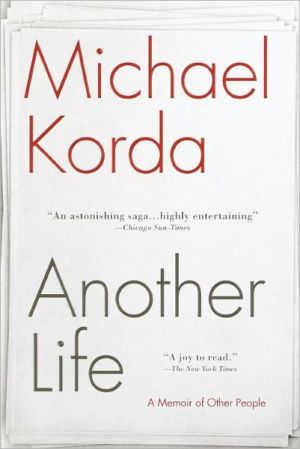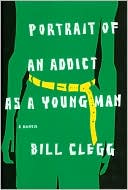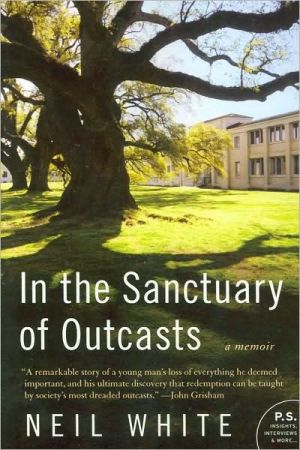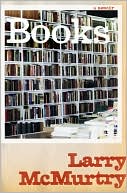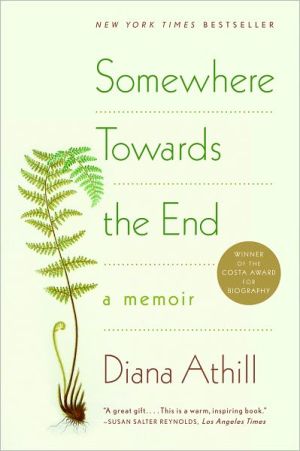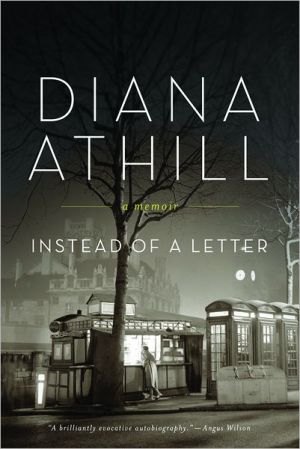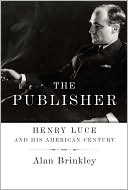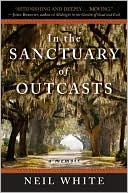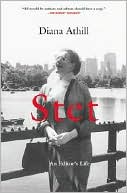Another Life: A Memoir of Other People
From world leaders to Mafia dons, from Hollywood stars to the literary world's most eccentric writers, the notable and notorious alike have entrusted their life's work to Simon & Schuster's preeminent editor, Michael Korda. In this masterful memoir, Korda reveals the unforgettable cast of characters and outrageous anecdotes behind four decades of blockbuster publishing, bringing us face-to-face with dozens of larger-than-life figures: Richard Nixon, who maintained his "presidential"...
Search in google:
Michael Korda's career in publishing spans more than 40 years. Now editor in chief of Simon & Schuster, he has edited the work of U.S. presidents, British royalty, first-time novelists, and veteran bestsellers. To coincide with the celebration of Simon & Schuster's 75th anniversary, Korda has written a book about what he knows best: In his new memoir, Another Life, he shares anecdotes and intimate portraits, offering glimpses behind the scenes, unrivaled gossip, and personal knowledge of practically everybody who matters in the world of book publishing. New York Observer - Robert Gottlieb Michael Korda's Another Life is not just a horse of a different color, it's a different kind of animal altogether — a book so diverting, so lively, and so well intentioned that it calls for a new classification: a Book of Fabulous Beasts...while [Korda] doesn't exactly spill the secrets of the confessional, he comes close enough to make this an elevated work of gossip; in other words, the kind of book we all like to read.... What makes this book not only amusing and instructive but appealing is that his close and canny observations are conveyed with a writer's glee, never with sour resentment or envy.
I was twenty-three before it occurred to me that my future might not lie in the movie business.\ Until then, I had always taken it for granted that I would follow in my family's footsteps sooner or later. Admittedly, I did not seem to have those gifts that had made my father, Vincent, a world-famous art director, nor did I flatter myself that I had the monumental self-confidence that had made my Uncle Alex a successful film director at the age of twenty-one and a legendary producer and film entrepreneur before he was thirty. As for my Uncle Zoltan, the middle of the three Korda brothers, the steely determination to have his own way that was at the very heart of his genius as a film director had not, I had guessed even as a child, been granted me in my cot. The brothers were, in any case, each unique and inimitable, with their strange accents, their many eccentricities, and their uncompromising (and unself-conscious) foreignness.\ Still, throughout my childhood and youth I clung to the notion, without much in the way of encouragement, that I would eventually make my living in the film business, if only because it was the only adult world about which I knew anything. It was not just that my father and his brothers were in it; my mother and my Aunt Joan (Zoli's wife), as well as my Auntie Merle (Oberon, Alex's wife), not to speak of Alex's ex-wife, Maria (a great star until talkies put an inglorious end to her career), all were actresses. It could not have been more the family business had we been shopkeepers living above the shop, and in fact all this often seemed just like that, except on a grander scale.\ I was not unrealistic enough to suppose that "all this"—the mansion at 144/146 Piccadilly (once the residence of King George VI when he was Duke of York, now the headquarters of London Films), the sprawling film studio at Shepperton, the London Films offices in New York, Paris, Hamburg, and Rome—would one day be mine, but I anticipated, more modestly, a place for me somewhere there, doing something, though exactly what was never clear to me.\ I learned French and Russian because Alex had remarked casually that his command of many languages had proven useful to him in the movie business. I took up photography because my father always carried a Leica in his pocket and believed taking photographs improved his eye for a scene or a detail. I labored at learning to write because Zoli believed that no movie was ever better than its script, and until you got it right it wasn't worth thinking about anything else. He himself labored for seven years on the script for a movie of Daphne du Maurier's The King's General without ever bringing it to the point where it satisfied him, or, more important, Alex. As a schoolboy on holiday, I cut my teeth as a writer trying to make the dialogue of this Restoration drama read more like English than Hungarian, at half a crown a page.\ Even history, my first love at school, I studied largely because it seemed likely to be useful in the movie business, at least as it was practiced by the Korda brothers. Alex's favorite subjects for movies tended to be drawn from history and biography—The Private Life of Henry VIII; I, Claudius; That Hamilton Woman; The Scarlet Pimpernel, for example—while most of Zoli's great successes were drawn (improbably for a Hungarian) from British colonial history: Elephant Boy, The Four Feathers, Drums, Sanders of the River. My father mostly read history and art history, rather than fiction, and could produce depictions of a Roman bedroom, the drawing room of the king of Naples, or Henry VIII's throne room on demand, mostly from memory, and pretty much overnight when required, without getting a single detail wrong.\ If the Korda brothers believed deeply in anything, it was the value of education. The Austro-Hungarian Empire might have been a ramshackle house of cards, but it had had a remarkably efficient educational system, with perhaps the highest standards in Europe. Even though they were Jewish, Alex, Zoli, and Vincent had had mathematics, ancient and modern history, foreign languages, and Latin beaten into them, like every other boy who attended the Gymnasium. These lessons were not forgotten, if only because of the blows that accompanied them. Nothing one learned was ever truly useless, my father liked to say—however nonsensical it seemed when one was young, it would sooner or later come in handy.\ I clung to this belief throughout my school days, and even through university, though it went against the evidence of my eyes. I could see no way in which studying the poetry of the French Symbolists, for example, was likely to prove useful to me, still less the early roots of the Russian language—a suspicion that subsequent life has proven to be only too well founded. Increasingly, I came to feel that I was being educated to no purpose at all, that three years as an undergraduate at Magdalen College, Oxford, were just an expensive way of putting off the day of reckoning when I would finally have to make a choice and do something—but what?\ I had spent two years in the Royal Air Force doing intelligence work in Germany before going up to Oxford and had enjoyed it as a kind of enforced pause in which nothing very much was expected of me except to keep my boots and buttons shiny and to not destroy any expensive pieces of radio equipment. If there was one thing to be said for the RAF, it was that in it I could be sure of being kept busy every hour of every day, without a moment's leisure to worry about my plans for the future—or the lack of them.\ Since I was due to be graduated in the summer of 1957, the new year of 1956 provoked much thought: the future was closing in fast; all my friends already knew exactly what they were going to do after graduation, while I was still waiting fecklessly for the family summons to the motion-picture industry. As it turned out, the summons was never to arrive. On January 23, Alex died, and it was very shortly apparent that his film "empire," however solid it looked on the outside, was not going to survive him—indeed, that he had never intended it to.\ Perhaps as a reaction to this dose of reality, perhaps because I felt a desperate need to join in something, however exotic, or perhaps simply because I needed, if nothing else, an escape from having to make up my mind about a profession or a job, I left Oxford in the late autumn of 1956. With three companions, I set off for Budapest at the first news of the outbreak of the revolution there, carrying medical supplies and helping out in the besieged city's hospitals. Like so many others throughout modern history, I thought better a uniform or the barricades than a lifetime of boredom as a clerk—a sentiment which to this day provides the French Foreign Legion with more recruits than it needs. In something of the same spirit, my friends and I drove a decrepit, borrowed Volkswagen convertible to Vienna, ready to do battle.\ I did not speak a word of Hungarian, I did not feel myself to be in any way Hungarian, and the little I knew of Hungarian history and politics filled me with dismay rather than with any pride or sympathy. I went because I was looking for adventure, because it seemed like a good opportunity to be a part of history in the making (as so many of my father's friends had done in Spain, not to speak of in World War Two), and perhaps because it looked fairly clear which side was the right one. It was David and Goliath, with the Hungarian Communist Party and the Red Army playing the role of Goliath.\ My years of RAF service, plus my obligatory annual summer stint in the RAF Reserve, were enough to give me the illusion that I might prove useful to the insurgents. I knew a lot about radios, there was hardly a weapon in the British arsenal that I could not strip and reassemble blindfolded, I was a good shot, I knew Russian. I saw myself perhaps playing the role in the streets of Budapest that the hero of The Four Feathers had played in the Sudan, or that T. E. Lawrence had played in Arabia. I would then, I thought, even more improbably, return home to woo Alexa, my Uncle Alex's young widow, with whom I had been hopelessly in love for years, to the annoyance of my family.\ My decision to go to Hungary brought tears to the eyes of Alexa (who had agreed to buy the medical supplies) and to those of my father, who, having survived two earlier Hungarian revolutions by the skin of his teeth, had a good idea of exactly what we were getting ourselves into. Except for Alexa, the only adult who seemed enthusiastic about this adventure was the writer Graham Greene, an old friend of my father's and something of a mentor to me, who believed that young men had the right, if not the obligation, to seek danger anywhere, however remote. The cause, as such, did not seem to him important—the main thing was to be "in the thick of things," with the heady sound of bullets whistling past one's ears.\ In the spirit of his later spoof of the British Secret Intelligence Service, Our Man in Havana, Greene introduced me to a member of MI6 over drinks at the Ritz Hotel bar, on Piccadilly. Greene himself had been a wartime spy for SIS, as well as one of Kim Philby's oldest (and most loyal) friends. Intrigue was second nature to him, and he reveled in mystery, so it was not surprising that I never learned the name of his companion, a military-looking gentleman with a Brigade of Guards tie who urged me to photograph the unit markings on any Soviet vehicles I saw, as well as the collar and shoulder flashes of the troops.\ What, I asked, should I do with the exposed film? "Place the film cartridges in a French letter and insert it into your rectum," the gentleman from SIS whispered. "Vaseline helps," he added delicately, sipping at his pink gin.\ He also told me the telephone number of a man in Budapest who might be able to help me in case of need, although, he warned, I was to use it only in the direst of emergencies. I must memorize the number, right then and there, since it was far too secret to write down.\ "You'll see," Greene said contentedly, as we watched the SIS man stroll down Piccadilly, merging into the evening crowd with his neatly furled umbrella and his bowler hat—no doubt on his way back to the SIS building on Shaftesbury Avenue, which was supposed to be top secret, but was in fact so well known that London taxi drivers pointed it out to tourists—"they always look after their own."\ More sensibly, my father gave me the telephone number of Zoltán Kodály, the famed composer—who would be respected, he said, by any regime—and promised to call the new prime minister, Imre Nagy, on my behalf, if necessary. Resigned to the inevitable, he advised me that the important things in a revolution were to wear plenty of warm clothes, to carry a street map, and to take as much food with me as possible. Alexa worried about my keeping warm too and gave me the heavy fur-lined jacket that Alex had used during the war to keep him warm on his journeys back and forth across the Atlantic in unheated bombers. I was going back to the city in which he had first become famous, wearing his coat. I wondered if there was any symbolism to this, and, if so, what it was.\ I followed my father's advice, loading up the car in Munich with as much delicatessen as could be crammed into what little space remained, and very good advice it turned out to be. Most roadblocks and barricades were manned by Hungarians who carried bottles of baracs, a peach brandy with a faint aftertaste of turpentine and the kick of jet fuel, in one coat pocket and spare ammunition or a grenade in the other. Cans of sardines and salamis were useful in calming tempers.\ Driving around Budapest at night was to experience all the thrills of danger, even during the brief truce when the Russians weren't shelling the city. At every street corner, armed civilians stuck their heads—and more important, their guns—into the car, punctuating their questions with clicks of their safety catches. On the discovery that my friends and I were British, we were usually offered a drink and often needed it. The empty bottles were gathered neatly beside the barricades to be made into Molotov cocktails. In that sense, drinking could be seen as yet another way of supplying the revolution with additional firepower, as well as keeping everybody's spirits high, but the result was a high level of nervous anxiety and a lot of unnecessary shooting.\ The Hungarians had won the first round of the revolution. The departing Russian troops looked even shabbier than the Hungarian civilians, at least by the spit-and-polish traditions of the British armed services. But what the Russians lacked in spit and polish they made up for in numbers and sheer ferocity. The first time I tried to photograph a column of tanks, an officer shouted a warning at me from the open cupola of his tank's turret, and when I didn't put the camera away fast enough, his machine gunner pointed his weapon straight at my head for emphasis. The expression on his face—he had the thickest, blackest eyebrows I had ever seen on a man, and was a dead ringer for Leonid Brezhnev—made it plain that nothing would give him more pleasure than putting a burst right into my chest. I decided then and there that SIS would have to do without any photographs from me.\ The few days after the Hungarian insurgents appeared to have fought the Red Army to a standstill were at once euphoric and unsettling. We felt we were living in the calm before the storm, as the new Hungarian government struggled for international diplomatic and military support, neither of which was forthcoming. There were ominous rumors that the Russians were gathering reinforcements from the Ukraine to retake the city. In the meantime, the bodies in the streets were being picked up at last. They lay there, Russian and Hungarian, sprinkled with lime to mask the odor of death, faces covered with brown wrapping paper or old newspapers, sometimes with a few fading flowers at their feet. Many of the dead Russian soldiers lay on their backs, their hands frozen in positions of supplication or anger, their heavy greatcoats spread around them on the pavement; most of the Hungarian corpses were laid out with more care, the arms folded neatly across the chest, one hand over the other. Not a few had a piece of shirt cardboard tucked under the hands with a name written on it in big block capitals.\ The Russians announced their return in force early on November 4, with a massive artillery barrage that began at three in the morning, lighting up the sky all around the city. There had been plenty of signs that they were coming, but nobody had wanted to believe them. Long-distance calls produced no reply or were answered in Russian, while radio stations all over the country closed down one by one, and trains that left Budapest failed to return. In the streets, the feeling was one of fatalism, a Hungarian national character trait even under the best of circumstances. The only optimism to be found was among the American correspondents lined up at the bars of the major hotels.\ My own spirits were not exactly buoyed by the sight of barricades of cars, street-lamp poles, trams, and tram rails going up in the streets. I did not think they would hold back the Russians for very long, which shortly proved to be the case. The constant rolling thunder of the big guns, the scream of incoming shells, and the deafening crash as they hit some apartment building or monument seemed exciting at first but soon began to oppress. The cold, gray, cheerless sky of Mitteleuropa in late autumn was obscured by a low-hanging pall of greasy black smoke from fires and explosions, and the air smelled of cordite, burning gasoline, diesel fumes, clogged drains, and death. Clouds of gritty plaster and cement dust rose from each hit. Shards of broken glass, chunks of masonry, and pieces of white-hot shrapnel hissed and whizzed past my ears. All too soon, however, noises began that made the artillery barrage seem comforting by comparison: the sharp hammering of machine guns, the high-pitched crack of rifles, the thud of an occasional hand grenade, the rapid pop-pop-pop of automatic small arms, and worst of all the ominous roar of diesel engines and the squeal of metal treads on cobblestones that indicated the approach of tanks. The rumor was that the Russians were not taking prisoners.\ As the city burned and shook around me—the old streets seemed to heave with each detonation, as if rocked by earthquakes—I began to think about my future, if there was one, in clearer terms. A number of my illusions faded during the siege and fall of Budapest, some of them having to do with fear and courage, others to do with the future. It became clear to me in the harsh, cold, grubby, and dangerous reality of Budapest—the city to which Alex had come as an impoverished enfant terrible in 1908, and where he had directed his first movie in 1914—that Alex's death had in fact meant the end of any easy way for me to enter the movie business. For the first time, I thought about that with relief. Why, after all, enter a business in which Alex and his brothers had succeeded beyond their wildest imaginations?\ Given my interest in history, my father had hoped that I would teach it eventually, but having seen history in the making, I didn't think that trying to make tidy sense of it would be the profession for me. In any case, I couldn't see myself settling into a comfortable life as an Oxford don, even assuming I could improve my academic record enough to make such a career possible.\ Had I nurtured any fantasies about working for the British intelligence services, they would have evaporated when I saw the Red Army in action. This particular fantasy was not as far-fetched as it sounds. This, after all, was in the years before an endless number of Oxford- or Cambridge-educated traitors were exposed, discrediting the idea of recruiting young men over a glass of sherry during tutorial sessions. Many an Oxford or Cambridge don was a talent scout for the spymasters, and those undergraduates who, like myself, were fluent in Russian and seemed to be on the right side of the class barrier were likely to receive a carefully phrased offer from one of them—I certainly had. (Oddly enough, an attempt had also been made to recruit me for the other side while I was in the RAF.)\ I had no interest in the more traditional "professions"—law, medicine, et cetera—and recognized that I was not at all the type for a career in the British diplomatic services, nor for the stock market or banking—like my father and my uncles, I was interested in spending money, not in dealing with other people's. There was always journalism, of course, but I had tried that during a brief spell with the Financial Times the summer before and hadn't liked Fleet Street much. Besides, the British journalists in Budapest were for the most part a poor advertisement for their craft, hard drinking, given to reporting even the wildest and most short-lived of rumors as truth. They seemed to me straight out of the pages of Evelyn Waugh's Scoop. "This is a second-rate profession," one of them said to me glumly, as we sat drinking in a bar, surrounded by bits of broken glass and pieces of the chandelier, which an explosion had brought down from the ceiling. "I mean, what can you say in five hundred words or less about all this? Anyway, what they want back in London is human-interest stories. And who wants to go out into the bloody streets and risk getting shot just to find some poor sod of a freedom fighter who understands English well enough to ask him how it feels to be shot at?"\ Who indeed? I said sympathetically. Still, it was a big story, surely, exactly the kind of thing people wanted to read about?\ "Don't you believe it. They want to read about pools winners and American film stars. This is foreign politics, that's all. The moment these people have lost, they'll be off the front page."\ Truer words, I was very soon to learn, were never spoken.\ The fact was, as it was gradually beginning to dawn on me while I sleepwalked through the last few days of the revolution, I didn't really seem to fit in anywhere in England. I didn't belong there any more than I belonged in Budapest. I was "mid-Atlantic"—as much a product of America, where I had lived as a child from 1941 to 1946, as of England; more at home in Switzerland, where I had gone to school at Le Rosey, or in France, where my father spent most of his time, than anywhere in the United Kingdom. During my service in the RAF, people had assumed that I was on some kind of Anglo-Canadian exchange program, while most people at Oxford mistook me for a Rhodes or a Fulbright scholar. I had lost most of my English accent while I was in America and made no effort to regain it once I was back in England. As a result, hardly anybody believed I was English—starting, unfortunately, with myself.\ Not being thought of as English gave me a great advantage in that it removed me altogether from the British class system, in which the most obvious identifier is accent. But since the class system is central to life in the United Kingdom, it also left me adrift. I had none of the cozy companionship with my peers or the sense of belonging that constitute the real advantages of a class system. I had always felt myself to be an outsider except when at school in Switzerland, where everybody had been an outsider, except the Swiss.\ So the problem wasn't what kind of a career I should pursue, it was where I was going to live, which was much easier to resolve. I felt a great sense of relief at reaching this conclusion, one that sustained me through many days of unpleasantness as the Russians "mopped up" after their victory, restoring the Hungarian Communist Party to power with a brutality that was to keep it there for more than thirty years. The streets were empty now of everything but burned-out tanks, smoldering barricades, corpses, and the omnipresent, expressionless Soviet soldiers. The enforced calm of defeat, oppression, and terror descended on the city.
\ From Barnes & NobleThough Michael Korda's family was practically movie royalty (his father was a prominent cinematic art director and his uncle Alexander directed That Hamilton Woman and The Private Life of Henry VIII, among many others), he opted for a career in publishing, one he details in engaging fashion in Another Life: A Memoir of Other People. Korda's accounts of his interactions with the greats, near greats, and would-be greats -- superagent Irving "Swifty" Lazar, Joan Crawford, Tennessee Williams, and many others -- make for a terrifically entertaining read.\ \ \ \ \ Matthew Reed BakerMichael Korda has created the near-impossible...a saga about book publishing that is compulsively readable....Korda combines irreverent memoir and an industry history into one rollicking tale. —Brill's Content\ \ \ Robert GottliebMichael Korda's Another Life is not just a horse of a different color, it's a different kind of animal altogether — a book so diverting, so lively, and so well intentioned that it calls for a new classification: a Book of Fabulous Beasts...while [Korda] doesn't exactly spill the secrets of the confessional, he comes close enough to make this an elevated work of gossip; in other words, the kind of book we all like to read.... What makes this book not only amusing and instructive but appealing is that his close and canny observations are conveyed with a writer's glee, never with sour resentment or envy.\ — New York Observer\ \ \ \ \ Walter Goodman...[E]ngaging....His account of the...changes that swept book publishing....are enriched by shrewd assessments of big players....[He] delivers a lot of information about the book business very lightly, with diverting asides about the celebrities he has encountered....[M]ore a book about personalities than about principles... —The New York Times\ \ \ \ \ Wendy Smith...Korda never comes across as mean-spirited; he seems to genuinely like almost everyone whose oddities he nails. He's equally nonjudgemental about the notoriously nasty management style favored by his friend Snyder, who went through distinguished editors like Kleenex, and about book publishing's evolution from a gentleman's trade into a hard-nosed business, chronicled here with exceeding shrewdness.\ — Elle Magazine\ \ \ \ \ Library JournalKorda's fascinating "memoir of other people" follows his own upward-moving tour of the publishing world. Rising from lowly young Pocket Books editor to the top job at Simon & Schuster, he encounters vivid writers, editors, agents, hacks, flacks, mentors, and rivals such as Max Schuster, Swifty Lazar, Robert Gottlieb, and Harold Robbins. (LJ 5/1/99) Copyright 2000 Cahners Business Information.\ \ \ \ \ GreenKorda's anecdotes will keep you turning the pages. \ —Business Week\ \ \ \ \ Lewis LaphamKorda's tone of voice is affectionate and urbane, his manner that of the accomplished raconteur who never spoils the story with a heavy-handed moral, relying for his effect on the telling anecdote and the apt phrase.\ — The New York Times Book Review\ \ \ \ \ Matthew Reed BakerMichael Korda has created the near-impossible...a saga about book publishing that is compulsively readable....Korda combines irreverent memoir and an industry history into one rollicking tale.\ — Brill's Content\ \ \ \ \ Walter Goodman...[E]ngaging....His account of the...changes that swept book publishing....are enriched by shrewd assessments of big players....[He] delivers a lot of information about the book business very lightly, with diverting asides about the celebrities he has encountered....[M]ore a book about personalities than about principles...\ — The New York Times\ \ \ \ \ Kirkus ReviewsThis is more entertaining than lunch with a power editor at the Four Seasons Grill—full of delicious gossip plus a lesson or two in book publishing. Korda, of course, is a power editor (editor-in-chief of Simon & Schuster) as well as a best-selling author (Man to Man, 1996; Charmed Lives: A Memoir, 1979; etc.). He's also a world-class raconteur with apparently total recall. In this memoir, which skims quickly over his career at Oxford and his experiences in the RAF and in the Hungarian Revolution, he alternates snapshots of authors, editors, and publishers he has known with exploration of the growth and changes in book publishing since he began at Pocket Books (a division of Simon & Schuster) in 1958. As he moved up in the hierarchy to edit and buy books for S&S, he took on Will and Ariel Durant, Irving Wallace, Harold Robbins, and Robert Moses. He became friends with legendary agent Irving Lazar, who called every day with a new book or proposal—invaluable to a young editor—and with Dick Snyder, just starting out on the publishing side of S&S and who was later to take it to a multi-billion dollar business. Korda also began working with authors like Jacqueline Susann, Carlos Castaneda ("I have never doubted for a moment the truth of his stories about Don Juan"), Larry McMurtry (drawn to Korda because they shared an interest in rodeos), Joan Crawford, Graham Greene (an old family friend), Tennessee Williams (who literally drank himself under the table), Jesse Jackson (who never did produce a book), and Claus von Bülow (ditto). Korda both roasts and toasts most of these notables, embroidering tales of their not always endearing eccentricities and at the same timeapplauding their talents. Neither modest or boastful about his own considerable abilities, Korda offers relatively few glimpses into his private life: long hours at work broke up his first marriage; his second wife is fond of horses and pigs. Deft, amusing, informative—just what the editor might hope for from one of his own authors. (Author tour)\ \
